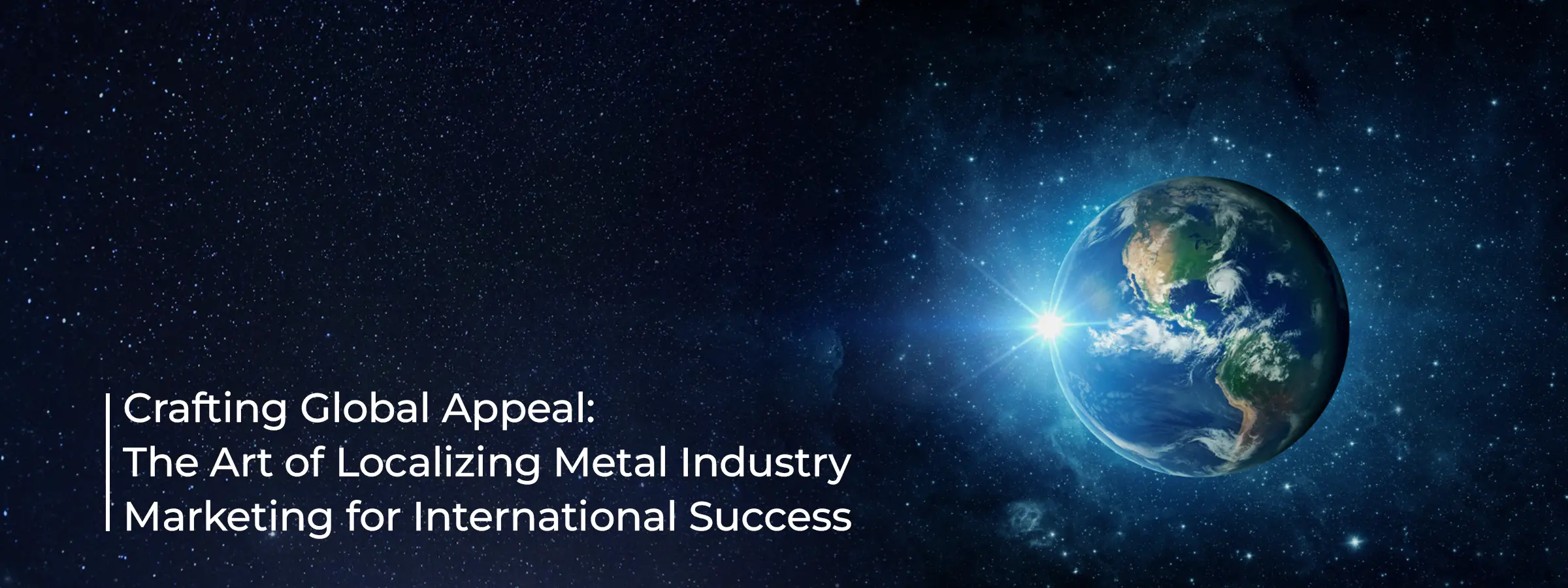
In the competitive world of the metal industry, where products and services cross borders and cultures, the challenge of speaking to a global audience in a language they understand - literally and metaphorically - cannot be understated. For international sales and marketing teams, the art of localisation is not just about translating words; it's about crafting messages that resonate locally, ensuring that every communication reflects the nuances of each unique market. This blog post delves into the strategic importance of localisation in metal industry marketing and how language and communication improvements can significantly impact international sales and marketing efforts.
Localisation goes beyond the essential translation of content; it involves adapting your marketing strategies to fit each target market's cultural, societal, and linguistic nuances. In the metal industry, where the products are as diverse as the markets they serve, understanding the local context is key to creating compelling marketing messages. It's about making your brand relatable and ensuring that your products meet each region's specific needs and expectations.
One of the primary challenges in international marketing is overcoming cultural barriers. What works in one country might not work in another due to differences in cultural norms, values, and taboos. Localisation helps navigate these differences by tailoring content and messaging to avoid cultural missteps and resonate with the local audience. For the metal industry, this might mean highlighting product features or benefits that align with local priorities or adjusting marketing campaigns to fit cultural preferences and celebrations.
Localisation also plays a crucial role in maintaining brand consistency and building trust across different markets. By presenting your brand in a way that feels local and familiar, you can create a stronger, more reliable brand image for the metal industry, where trust and reliability are paramount; ensuring that your brand is perceived positively across different cultures can make a significant difference in your global market presence.
Each country has its own regulatory requirements and standards, especially in industries regulated as metal manufacturing and sales. Localisation ensures that your marketing materials comply with these local regulations and communicate any compliance or certifications that may be a selling point in specific markets. This level of attention to detail can significantly enhance your brand's credibility and authority internationally.
Advancements in language services and technologies have made localisation more accessible and efficient than ever. These technologies, from AI-driven translation tools to sophisticated localisation software, enable sales and marketing teams to streamline their localisation processes. However, the human element remains crucial, especially in an industry as specialised as metal. Combining technological efficiency with the expertise of professional translators who understand the technicalities and nuances of the metal industry can ensure accuracy and cultural relevance.
In today's globalised market, localisation is not just an option; it's necessary for companies looking to expand their international footprint. In the metal industry, where the competition is fierce and the stakes are high, mastering the art of localisation can provide a competitive edge. By speaking directly to each target market's needs, preferences, and languages, companies can foster stronger connections, drive sales, and build lasting relationships.
The journey of international expansion in the metal industry demands more than just a one-size-fits-all approach. It requires a deep understanding of each market's unique landscape and a commitment to crafting messages that resonate on a local level. By prioritising localisation in your international sales and marketing strategy, you can ensure that your brand crosses borders and connects cultures, paving the way for global success.
© 2024 WHITE GLOBE GROUP PVT LTD